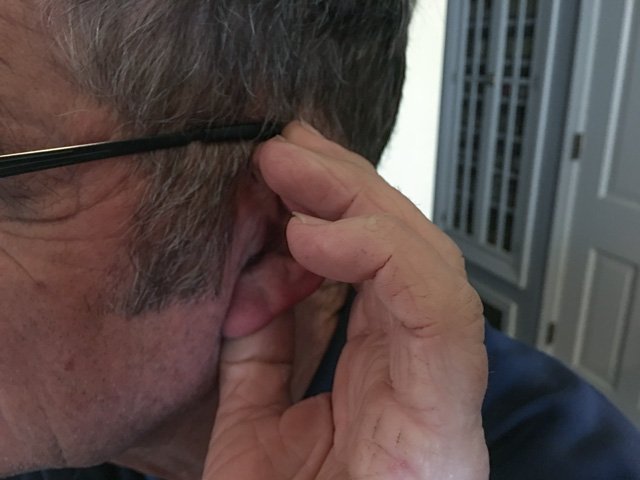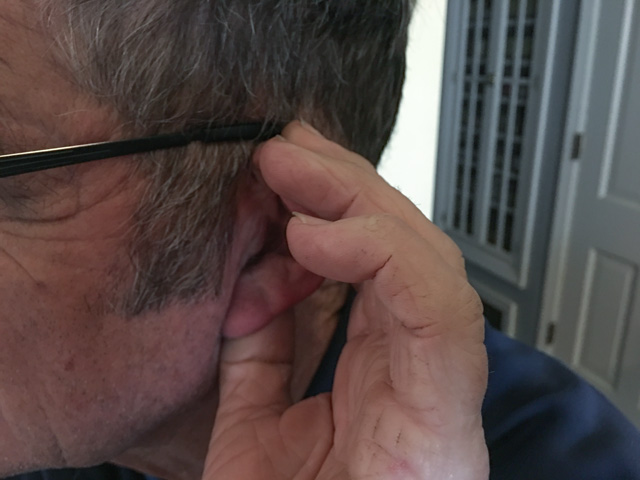Production Blog
Hearing Loss Tips to Help Farmers Survive the Holiday Din
Most people worry about overindulging during the holiday dinner. For others, like myself, it is the holiday din that is more problematic.
I have hearing loss, tinnitus (ringing in the ears) and hyperacusis (ear pain with certain sounds). I grew up operating open station tractors and around banging hog feeders, feed hammer mills and bellowing livestock. Being hard of hearing also runs in my family. That's a genetic remark, not a comment on character.
Sadly, these days my decibel-damaged ears seem better equipped to handle any of these farm chores than what should be joyous holiday gatherings.
The good news is a few simple tactics can help navigate the coming family events, parties and winter farm meetings filling the schedule.
But first, let's throw out the stigma that hearing loss is merely an issue of aging. Hearing loss is a disability made more difficult because it isn't outwardly obvious to others. It requires that you, the person with the hearing loss, constantly advocate for yourself.
And most of us don't do that.
I've yet to feel marginalized when I've confessed my hearing loss and asked, for example, to step to a quieter place to converse. But dog-gone-it, I still find myself muddling through garbled conversations -- all the while kicking myself internally for not speaking up to confess that I'm struggling.
The most important thing I've learned since my ears officially went bonkers is to remind others of the importance of face-to-face discussions. I often have fellow hearing loss sufferers remark that I am one of the few people they can understand. This is because I take steps to face others when speaking. There's no reason to shout, but there's need to be deliberate in how you converse.
The struggle is real, but there are some tips that can help get you back in the conversation.
-- Let others know you have hearing difficulties and simply tell them your needs. They can only help if they know.
P[L1] D[0x0] M[300x250] OOP[F] ADUNIT[] T[]
-- Be patient with yourself and realistic. Group conversations at large gatherings can be frustrating. You may need to pull individuals aside to a quiet spot for more intimate discussions.
-- Some locations make hearing more difficult. Taller ceilings or metal buildings can be tough, for example.
-- Conversations often happen while people are moving or doing other things. Again, explain the situation and how important it is to stop and have face-to-face dialogue.
-- In a dinner setting, ask to be seated in the center of the table or near the person you most want to converse with.
-- If blaring background music is interfering, ask if it can be lowered. In the same light, candlelight can make it hard to lip read if that's how you fill conversational gaps.
-- Hearing fatigue is a real thing. It may be necessary to remove yourself from the din of prolonged gatherings to let the brain rest and regroup.
-- Back-of-the-room seating may be great if you want to sleep through a meeting, but not if you want to pick up important details. Sit where you can hear and not just where it is convenient to make an escape.
-- Small recorders or phone recorders can be helpful for review purposes if it is important to capture the last word during a meeting. Transcription apps such as Otter.ai can help convert those meeting notes to written word.
-- Hearing aids may help. Recently, over-the-counter amplification became available without a prescription for those with low-to-moderate hearing loss.
I've found comfort and lots of practical ideas from reading a free blog written by Shari Eberts, a New Yorker who advocates for those with hearing difficulties through her website: Living With Hearing Loss (www.livingwithhearingloss.com).
When I wrote about the topic several years ago, Ebert told me: "Communication practices apply to the person with the loss and those who live and work around them."
Trust me, you will have to speak up about your hearing loss over and over. Loved ones don't always "hear" or absorb it. Doctors, receptionists, the clerk at the implement dealership -- all may need a kind reminder that what they say matters to you. If you present it to them in this way, I'll bet they listen.
**
Editor's Note:
Parts of this article were originally published as a blog in November 2019 and November 2021:
For information on over-the-counter amplification devices: https://www.cdc.gov/…
Pamela Smith can be reached at pamela.smith@dtn.com
Follow her on Twitter @PamSmithDTN
(c) Copyright 2022 DTN, LLC. All rights reserved.






Comments
To comment, please Log In or Join our Community .